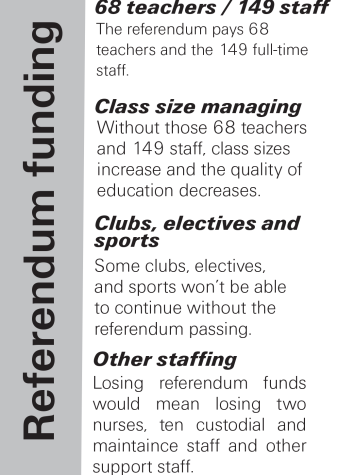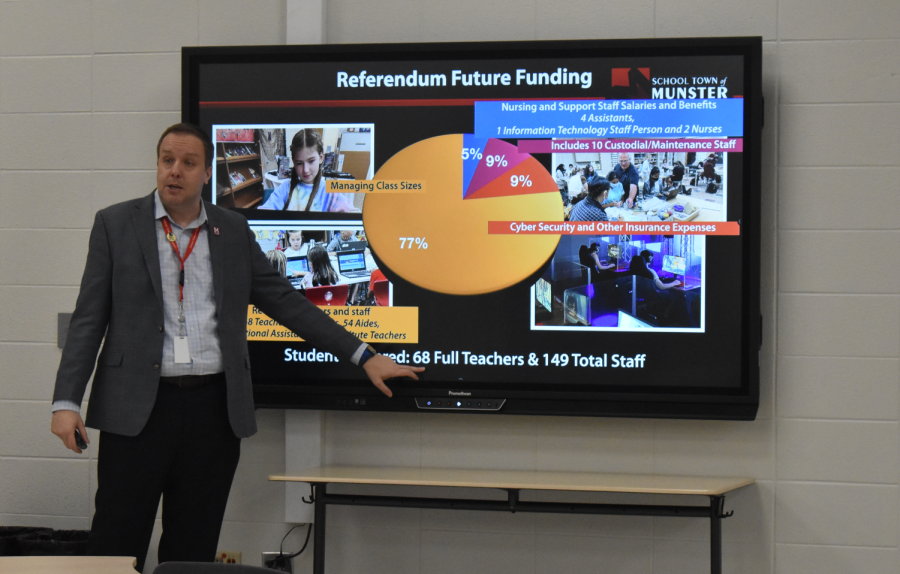Future of Munster schools on the line: Referendum vote May 2
Town votes on referendum May 2 to fund Munster schools
SPEAKING STATISTICS presenting about the School Town of Munster referendum to the publications staff, Dr. Bret Heller, superintendent of schools, explains what school funding the referendum contributes to. On May 2, Munster voters will vote on the continuation of the referendum currently in place. (photo by zoe clark)
April 20, 2023
 On May 2, voters will take to the polls and have the opportunity to vote and possibly renew a referendum that has been in effect in the School Town of Munster since 2017. Munster has recieved funding since 2013, and although the rate rose in 2017, it will not increase how much taxpayers pay if it passes again.
On May 2, voters will take to the polls and have the opportunity to vote and possibly renew a referendum that has been in effect in the School Town of Munster since 2017. Munster has recieved funding since 2013, and although the rate rose in 2017, it will not increase how much taxpayers pay if it passes again.
A referendum is an additional way for the schools to receive funding through property tax. The district is asking to charge 41.96 cents per $100 of the 2023 assessed home value until 2031.
Munster’s Political Action Committee has been going door to door in order to promote the vote in May. They talk to residents about the referendum and its benefits. Dr. Ingrid Schwarz-Wolf, school board vice president, says the most common question they get is about where the money is going.
“People say, ‘Now you’ve gotten all that money since 2017? What do you do with it?’ Well, we spent it, of course. We hired extra teachers on it,” Dr. Schwarz-Wolf said. “And there are certain things you have to use the referendum money for, you can’t just spend it on anything.”
The referendum helps to fund teacher salaries, extracurricular activities and sports, construction projects and insurance expenses.
Dr. Bret Heller, superintendent of Munster schools, says that without the referendum funding, serious cuts will have to be made. The referendum pays for 68 teachers and 149 full-time staff spread across five Munster schools. Without those teachers and staff, class sizes would increase dramatically, and the quality of education Munster is known for would decrease. According to Dr. Heller, when funding was cut in 2009, schools had to cut sports teams, elective classes and staff and the buildings were not taken care of as well.
In 2009, Indiana changed how they fund schools from purely property tax to an economy-dependent state funding system. This new formula placed Munster funding in the bottom 10% of the state. Despite the money the referendum brings, Munster schools are some of the lowest funded.
“We’re still in the bottom 10 out of 372 schools in our state, some of which are virtual schools,” Dr. Ingrid Schwarz-Wolf said. “Luckily, we’re in a community that supports giving more money to our schools, because they know we perform well.”
In 2017, in addition to increasing the tax rate, the Town of Munster passed an additional capital projects referendum to help fund the new facilities you see around the school now. Both referendums passed with a 68% vote.





J. Richard • May 2, 2023 at 8:08 pm
As a Mumster resident I am appalled to see two referendums in over 10 years and the school town is still complaining about money shortages.